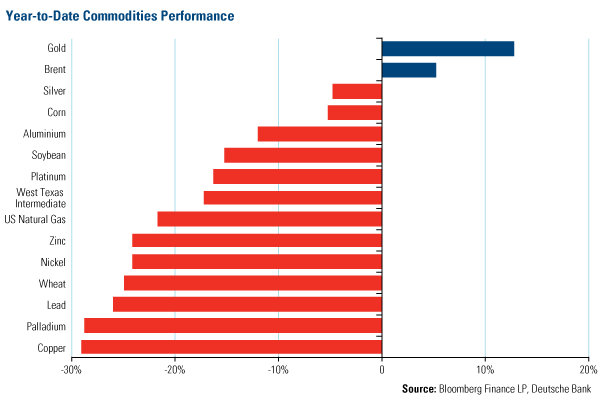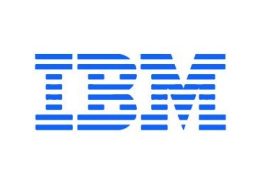Energy and Natural Resources Market Cheat Sheet (October 11, 2011)

Strengths
- This week, the Global Resources Fund outperformed its peers and benchmarks due to its defensive positioning of the portfolio. Exposure to seniors and larger market cap stocks helped limit the downside risk to the Fund. Junior exploration stocks also rebounded from 52-week lows.
- Deutsche Bank highlighted that global stainless steel production rose 3.8 percent to a record 16.4 million tons in the first half of 2011.
- Copper prices gained 4 percent this week on reports that LME cancelled warrants jumped to 60,000 tons, the highest level in over two years.
- According to the International Monetary Fund, Thailand, Bolivia, and Tajikstan added a combined 18.2 tons of gold last month.
- Crude oil gained 5 percent this week after the U.S. Department of Energy reported a surprise drop in crude stockpiles and on signs the U.S. may take further steps to sustain an economic recovery.
- Deutsche Bank reported strength among agriculture markets. Corn was supported by the U.S. Grains Council prediction that China will need to import five times more corn than the 2 million tons the USDA is currently estimating in 2011-12. Wheat futures rose by increased tenders from the MENA region. Many nations there stocked up after last year's Arab Spring, but now are in a position where they need to import again. Additionally, Thailand, the world’s largest exporter of rice, cut its main harvest production forecast by almost 10 percent after floods damaged crops.
Weaknesses
- Bloomberg reported that Nigeria, Africa’s top oil producer, plans to end fuel subsidies, saving the government $7.5 billion in 2012. Nigeria is facing declining revenue as the price of oil, the source of more than 95 percent of export income and 80 percent of government earnings, fell 28 percent in the past six months.
- Macquarie Research drew attention to precious metals’ year-to-date performance, which has remained low. Palladium prices have been hit by large ETF redemptions, with palladium ETF holdings now close to levels seen in mid-2010.
- The latest steel market sentiment survey results were highlighted by Macquarie Research. Fifty-seven percent of companies globally now expect prices to be lower in a three-month timescale, with only 13 percent seeing upside. Eleven percent of global respondents expect global demand to rise this coming quarter, with 46 percent expecting it to fall.
Opportunities
- Goldman Sachs Group reported that commodity prices may rise 20 percent over the next year as growth in emerging markets offsets the impact of the sovereign-debt crisis in Europe and a slowdown in developed economies. “With recent GDP revisions by our economists falling hardest on Europe but emerging market growth expectations still relatively solid, we continue to believe that demand growth in 2012 will be sufficient to tighten major commodity markets,” an analyst for the bank said.
- Fed Chairman Ben Bernanke said the central bank can take further steps to sustain a recovery that’s close to faltering and cautioned lawmakers against making changes in fiscal policy that may harm growth. He went on to say that the Fed can give more information about its pledge to keep interest rates low at least through mid-2013, reduce the rate paid on banks’ reserve deposits or buy more securities.
- Codelco said buyers in China should take advantage of a 14-month low in copper prices to boost imports of the metal. Customer orders from Asia look quite strong for next year, CEO Diego Hernandez said, adding that Codelco has started talks with buyers for 2012 sales and expects them to match this year’s number. Clients in Europe are cautious on requirements and the company has had some cancellations, Hernandez said. Other customers have sought to bring forward deliveries, he said.
Threats
- An International Monetary Fund official warned that the eurozone could see a “meltdown”’ in two to three weeks, unless policy actions take place, says JPMorgan. This in turn would trigger a domino effect, producing a meltdown across the European banking system.
- Claudio Scliar, the Ministry’s Secretary for geology and mineral royalties, announced that Brazil had plans to boost taxes on iron ore and that the government is considering a plan to double the royalty on iron ore to 4 percent of gross revenue from 2 percent of net sales, Nomura Research highlighted. She further went on to say that the ministry aims to send Congress three bills this month to alter minerals royalties, change the way mining concessions are granted and create a new regulating body.
- An energy economist and publisher of Petroleum Economics Monthly recently said, “Natural gas as an energy source is now roughly the equivalent of $24-per-barrel oil.” Furthermore, the publisher believes that projections of crude-oil demand in 2025 are typically 20 percent to 30 percent too high, and that crude-oil prices are likely to drop sharply as those forecasts go awry.
- Macquarie reported that Grasberg, Freeport McMoRan Copper and Gold’s mine in Indonesia will see union workers extend their strike for a second month. Freeport has experienced on-going labor disputes at a number of their mines.












